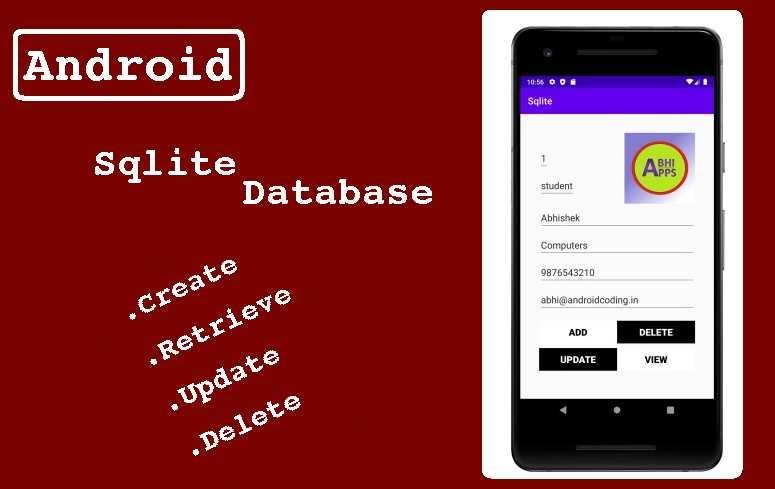

- #Android studio view sqlite database how to
- #Android studio view sqlite database update
- #Android studio view sqlite database upgrade
- #Android studio view sqlite database code for android
│ │ │ │ │ ├── UserAccountListViewActivity.java Inside your application package go to databases where you will found your database (contactsManager). Search for your application package name. Go to data directory inside data directory.
#Android studio view sqlite database how to
│ │ │ │ │ ├── UserAccountAddActivity.java How to view the data stored in sqlite in android studio Follow the following steps to view the database and its data stored in android sqlite: Open File Explorer.
#Android studio view sqlite database code for android
For database table operation source code, please refer article How To Write Reusable Code For Android SQLite Database.Show Data From SQLite Database In Android ListView Example Source Code. You can click each button to add a new user account, edit a checked user account and delete all selected user account.Ģ. There are three buttons in the action bar.Please note the table account‘s primary key column name should be ‘ _id‘, otherwise when you use SimpleCursorAdapter to bind the data to the ListView, there will prompt “: column ‘_id’ does not exist” exception.Run below command in a dos window to show UserInfo.db tables definition and row data in it.ġ27|generic_x86:/ # sqlite3 /data/data//databases/UserInfo.dbĬREATE TABLE android_metadata (locale TEXT) ĬREATE TABLE account( _id integer primary key autoincrement,user_name text,password text,email text ).Please refer article Android Device Monitor Cannot Open Data Folder Resolve Method for more detail. Then you can use an android device monitor to see the file UserInfo.db is saved in the folder /data/data//databases.Generic_x86:/ # chmod 777 /data/data//databases Where in other simply SQLite is relational database management, In android application development use of manage private database. Run the below command in the dos window to change the folder access permission. SQLite database in Android is used to store a structure of relational or simple offline data in the android device.The user account data is saved in the SQLite database file UserInfo.db.When the example starts, it will load and show user account data in the list view.
#Android studio view sqlite database update
We define a DBManager class to perform all database CRUD(Create, Read, Update and Delete) operations.If you can not watch the above video, you can see it on the youtube URL Hence we can figure out the best way to convert the database from the old schema to the new one. onUpgrade(SQLiteDatabase db, int oldVersion, int newVersion) : It’s called when the schema version we need does not match the schema version of the database, It passes us a SQLiteDatabase object and the old and new version numbers.It passes us a SQLiteDatabase object, pointing to a newly-created database, that we can populate with tables and initial data. onCreate(SQLiteDatabase db) : It’s called when there is no database and the app needs one.Super(context, DB_NAME, null, DB_VERSION) Constructor : This takes the Context (e.g., an Activity), the name of the database, an optional cursor factory (we’ll discuss this later), and an integer representing the version of the database schema you are using (typically starting from 1 and increment later).

For that we’ll need to create a custom subclass of SQLiteOpenHelper implementing at least the following three methods.
#Android studio view sqlite database upgrade
SQLiteOpenHelper wraps up these logic to create and upgrade a database as per our specifications. We will have option to alter the database schema to match the needs of the rest of the app.


 0 kommentar(er)
0 kommentar(er)
